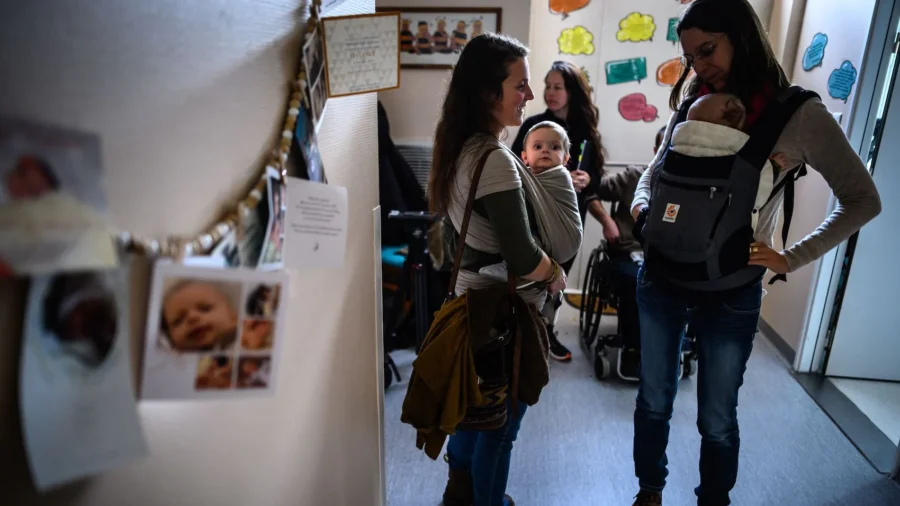French President Emmanuel Macron promised on Tuesday to overhaul parental leave so it pays better after France saw the lowest number of births since World War II last year.
According to the latest annual census report from the French National Statistics and Economic Studies Institute INSEE, France counted 678,000 registered births last year, 7 percent lower than in 2022 and down 20 percent since the modest 2021 peak.
Although French birth rates have declined steadily since 2014, with 818,565 registered births, the country has fared better than other European countries in recent decades, such as Germany, Italy, and Spain, where birth rates have been collapsing dramatically amidst an aging population.
Demographers have traditionally attributed this to France’s generous health and childcare system as well as tax breaks and other benefits for having children, especially three or more.
“France will only be stronger if it revives the birth rate,” Mr. Macron said during a wide-ranging news conference.
Currently, in addition to basic maternity leave, French parents can take additional parental leave for one year, with the possibility of renewing twice, receiving government cheques of some 400 euros ($435) per month.
Mr. Macron argued against the current program, saying it kept mothers off the labor market for too long and that the pay was problematic for some parents.
“A new, better paid parental leave will allow both parents to be with their children for six months if they want,” he added.
INSEE said the average number of children per mother fell last year to a three-decade low of 1.68. In 2021, France had the highest birth rate in the European Union along with the Czech Republic at 1.83.
A 2.2 figure is generally considered to be the minimum in order to maintain current population levels in developed countries. Furthermore, France’s latest number is also below the 1.8 births estimate Mr. Macron’s deeply contested 2023 retirement reform was based on, thus jeopardizing the balancing of the pension deficit.
However, a recovery in the birth rate in the coming years is possible as people born in 2000-2010—a period of high births—begin to have children, researchers at the Institut National d’Etudes Demographiques said in a note.
The pro-family Unis pour les Familles association attributes the declining birth rates more to unfavorable conditions than people desiring fewer children.
A poll of 11,000 people revealed that two-thirds of childless people wanted children, while one out of five parents said they would have liked more children if circumstances were different.
Thirty percent cited concerns about the economic, social, and climatic outlook keeping them from bringing children into the world, while 28 percent said it was too expensive.
Reuters contributed to this article.


